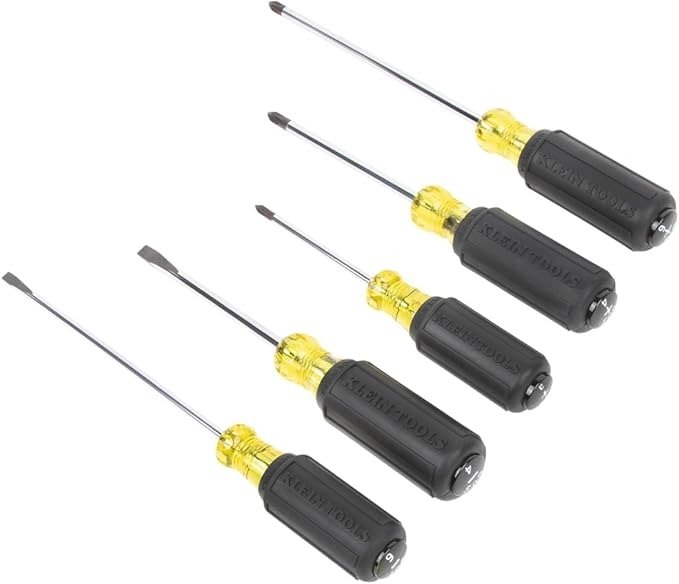Disclosure
This website is a participant in the Amazon Services LLC Associates Program,
an affiliate advertising program designed to provide a means for us to earn fees
by linking to Amazon.com and affiliated sites.
Yes, a car battery can give you a shock, but it is usually not strong enough to cause serious harm. Car batteries typically deliver a low voltage of about 12 volts, which is generally too low to produce a dangerous electric shock through dry skin.
However, under certain conditions—such as if your skin is wet, if there is a direct short circuit, or if you accidentally bridge the terminals with a conductive object—you can experience a mild shock or even sparks that may cause burns or injuries.
Many people wonder if touching a car battery is risky because batteries contain a lot of power and can cause damage if mishandled. The truth is, while the voltage is low, car batteries can deliver a high current that can lead to sparks or even small explosions if shorted. This is why safety precautions are essential when working around them.
Best Safety Gear for Working with Car Batteries
When handling car batteries, safety is key to preventing shocks, burns, or accidents. Here are three top products designed to protect you while working on your car battery:
DEWALT DPG82-11C Concealer Clear Anti-Fog Dual Mold Safety Goggle
These safety goggles provide full eye protection against sparks and acid splashes. They fit comfortably and feature an anti-fog design, making them ideal for battery maintenance.

Mechanix Wear – Original Gloves
Durable and flexible, these gloves offer excellent grip and protect your hands from acid, dirt, and minor electrical shocks. They are breathable, ensuring comfort during long tasks.

Klein Tools 85805 Electrician’s Insulated Screwdriver Set
This set is insulated to handle electrical work safely, reducing the risk of shocks when tightening or loosening battery terminals. The ergonomic handles improve control and reduce fatigue.

How Dangerous Is the Electric Shock from a Car Battery?
Electric shocks from car batteries are generally not dangerous but can cause discomfort or minor injuries under certain conditions. A standard car battery produces about 12 volts, which is too low to pass a harmful current through dry human skin. This means if you simply touch the battery terminals, you’re unlikely to feel much, if anything.
However, the danger lies in the battery’s ability to deliver a very high current, which can cause sparks or burns if the terminals are short-circuited by metal objects like keys or tools. These sparks can ignite flammable gases around the battery, potentially leading to an explosion.
Additionally, if your skin is wet, cut, or broken, the resistance drops, and the battery might give you a stronger shock. Battery acid is another hazard — spills can cause burns or irritations, making proper handling crucial.
Key points about the danger level:
- Voltage is low, so electric shock is usually mild or nonexistent.
- High current can cause sparks, burns, or fires.
- Risk increases if skin is wet or damaged.
- Battery acid exposure is a chemical hazard.
Understanding these risks helps you handle car batteries safely and avoid injury.
Can a Car Battery Shock You Through Clothing or Gloves?
Generally, a car battery is unlikely to shock you through clothing or gloves, but some factors can affect this safety barrier. Let’s break down why:
Clothing as a Barrier
Most everyday clothing—like cotton shirts, jeans, or jackets—acts as an insulator, preventing direct contact with the battery terminals. This means if you accidentally brush against a terminal, the fabric usually stops the flow of electricity, making a shock unlikely. However, thin or wet clothing can reduce this protective effect. For example, wet clothes conduct electricity better, increasing the risk of a mild shock if you touch both terminals or the battery and a grounded metal part.
Gloves and Their Protection
Gloves designed for electrical or automotive work provide a better layer of protection than regular gloves or bare hands. Rubber or insulated gloves resist electric current, preventing shocks from low-voltage sources like car batteries. But not all gloves are created equal. Thin gardening or fabric gloves don’t offer significant electrical protection and could still allow a shock.
Important Points to Consider:
- Thick, dry clothing usually blocks shocks from 12-volt car batteries.
- Wet or thin clothing increases risk by conducting electricity more easily.
- Proper insulated gloves provide excellent protection and reduce shock risk.
- Avoid touching both battery terminals simultaneously or bridging terminals with conductive materials.
- Always inspect gloves for holes or damage before use—compromised gloves won’t protect you.
In summary, clothing and gloves can provide a strong layer of defense, but it’s critical to use appropriate protective gear and handle car batteries with caution.
What Safety Precautions Should You Take When Handling Car Batteries?
Handling car batteries safely requires following a few essential precautions to avoid shocks, burns, and other injuries. Here’s a clear guide to keep you protected:
Wear Proper Safety Gear
Always use insulated gloves and safety goggles. Gloves protect your hands from electric shock and battery acid, while goggles shield your eyes from acid splashes and sparks.
Avoid Short Circuits
Never place metal tools or jewelry near battery terminals. Accidentally bridging the positive and negative terminals with a conductive object can cause sparks, intense heat, and even explosions.
Work in a Well-Ventilated Area
Car batteries can emit hydrogen gas, which is highly flammable. Good ventilation helps prevent gas buildup and reduces the risk of fire or explosion.
Disconnect the Battery Correctly
When removing a battery, always disconnect the negative (-) terminal first, then the positive (+). This reduces the chance of short circuits during removal.
Keep the Battery Clean and Dry
Dirt or corrosion on terminals can cause poor connections and increase resistance, leading to overheating. Clean terminals with a battery brush and keep the battery dry.
Avoid Direct Contact With Battery Acid
If acid leaks or spills, avoid skin contact. Battery acid can cause burns and irritation. If contact occurs, rinse the area immediately with plenty of water and seek medical help if needed.
Store and Dispose of Batteries Properly
Don’t throw batteries in regular trash. Take them to designated recycling centers to prevent environmental harm.
Summary of Safety Steps:
- Use gloves and goggles
- Avoid metal contact with terminals
- Work in ventilated spaces
- Disconnect negative terminal first
- Keep battery clean and dry
- Handle acid spills carefully
- Dispose of batteries responsibly
What Happens If You Get Shocked by a Car Battery?
Getting shocked by a car battery usually results in a mild sensation or no sensation at all because of its low voltage, but under some circumstances, it can cause discomfort or minor injuries. Here’s what to expect and what to do if you experience a shock:
Typical Sensation
Most people who accidentally touch a car battery’s terminals might feel a slight tingling or nothing at all. This is because a typical 12-volt battery doesn’t generate enough voltage to push a dangerous current through dry, intact skin.
When Could It Be Worse?
- If your skin is wet, sweaty, or broken, the electrical resistance decreases, and you might feel a stronger shock.
- If you create a direct short circuit between the positive and negative terminals with a conductive object, sparks can fly, potentially causing burns or starting fires.
- Sometimes, the high current from a short can cause minor burns at the point of contact.
Chemical Burns and Acid Exposure
Besides electrical shock, battery acid leaks pose a serious risk. Acid can cause painful burns or skin irritation. If you get battery acid on your skin or in your eyes, rinse immediately with plenty of water and seek medical help.
When to Seek Medical Attention
- If you experience a prolonged or severe shock sensation.
- If you notice burns, blisters, or swelling where you touched the battery.
- If battery acid contacts sensitive areas like eyes or open wounds.
Summary:
- Most shocks from car batteries are mild or unnoticed.
- Wet skin or direct short circuits increase shock severity.
- Sparks can cause burns or fire hazards.
- Battery acid is a chemical hazard needing prompt attention.
How Can You Safely Dispose of or Recycle Car Batteries?
Proper disposal and recycling of car batteries are crucial to protect the environment and prevent health hazards. Car batteries contain hazardous materials such as lead and sulfuric acid, which can contaminate soil and water if not handled correctly.
Why Recycling Matters
Recycling recovers valuable materials like lead and plastic, reducing the need for mining new resources. It also keeps toxic chemicals out of landfills and prevents pollution.
Safe Disposal Steps:
- Do Not Throw Batteries in Trash
Car batteries should never be discarded with regular household waste due to their toxic components. - Use Designated Recycling Centers
Most auto shops, battery retailers, and recycling centers accept used car batteries for proper processing. These facilities follow strict safety and environmental guidelines. - Transport Carefully
When taking a battery for recycling, handle it carefully to avoid leaks or damage. Use a sturdy container and keep it upright. - Check for Local Regulations
Some areas have specific laws or programs for battery disposal—check with your local waste management authority for guidelines.
Additional Tips:
- Many places offer discounts or rebates when you trade in your old battery for a new one.
- Avoid storing old batteries in enclosed spaces for long periods to prevent gas buildup.
Summary:
- Recycling car batteries conserves resources and protects the environment.
- Use certified recycling centers for disposal.
- Transport batteries safely to avoid spills.
- Follow local laws and regulations.
Conclusion
Car batteries can give you a shock, but the risk of serious injury is generally low due to their low voltage. However, the high current they can deliver makes proper handling and safety precautions essential.
Wearing insulated gloves and safety goggles, avoiding metal contact with terminals, and working in well-ventilated areas are key steps to staying safe. Remember, battery acid poses a chemical hazard, so immediate action is necessary if you come into contact with it. Lastly, disposing of or recycling car batteries responsibly helps protect the environment and prevents harmful exposure.
By understanding how car batteries work and following these safety guidelines, you can confidently and safely handle battery maintenance or replacement. Stay cautious, prepared, and always prioritize your safety when working around car batteries.
Frequently Asked Questions About Can a Car Battery Give You Shock?
Can a car battery kill you if it shocks you?
No, a standard 12-volt car battery is very unlikely to be fatal. The voltage is too low to push a dangerous current through dry skin. However, accidents involving short circuits can cause sparks or burns, which could be hazardous.
What should I do if I get shocked by a car battery?
If you experience a mild shock, wash the area with soap and water and monitor for any burns or irritation. If you feel severe pain, notice burns, or experience unusual symptoms, seek medical attention immediately.
Can car batteries explode?
Yes, car batteries can explode if sparks ignite hydrogen gas emitted by the battery, especially if the battery is damaged, overcharged, or improperly handled. That’s why working in well-ventilated areas and avoiding sparks is critical.
Are there any special gloves I should use when working with car batteries?
Yes, insulated electrical gloves or mechanic’s gloves with insulating properties are recommended. Avoid using thin fabric gloves that don’t protect against electric shock or acid spills.
How can I safely clean corrosion from battery terminals?
Use a battery cleaning brush or a mixture of baking soda and water to neutralize corrosion. Always wear gloves and goggles, and disconnect the battery (negative terminal first) before cleaning.
Is it safe to charge a car battery indoors?
Charging a car battery indoors can be safe if the area is well-ventilated to prevent hydrogen gas buildup. Always follow the charger manufacturer’s safety instructions and avoid open flames nearby.
What is the biggest risk when handling car batteries?
The main risks are chemical burns from battery acid, electrical burns or shocks from short circuits, and explosion risks from hydrogen gas ignition. Proper safety measures mitigate these dangers.
